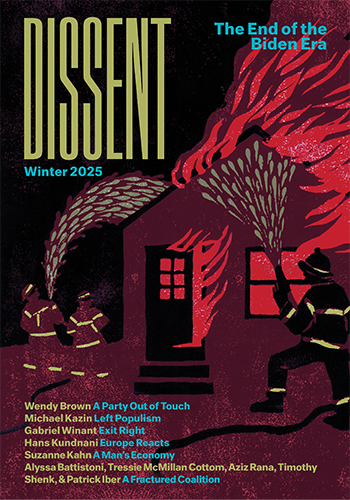Marxist Perspectives Revived
Marxist Perspectives Revived
Marxist Perspectives Revived
We at Dissent are pleased to announce a new partnership with the Brooklyn Institute for Social Research, a new organization dedicated to providing ?material and intellectual support and space for young scholars to teach, write, research, publish and, put simply, work.?
The Institute has launched a project called ~Archive to digitize exciting and hard-to-find books and magazines in order to provide the public with free access.
As scholarly resources like JSTOR become increasingly expensive and restricted to those with access to major universities, we are thrilled to partner with an institution dedicated to open access.
The Brooklyn Institute needs your help to make ~Archive possible. To pay for the scanning equipment and tools to digitize books and journals for the public, the Institute has launched a Kickstarter. If you are interested in seeing Marxist Perspectives and other exciting finds online, support the Kickstarter campaign!
***
About Marxist Perspectives
Dissent acquired a complete set of the short-lived and fascinating journal Marxist Perspectives, produced in the late 1970s through the early 1980s. Using the ~Archive process, the Brooklyn Institute will digitize the journals and make them available both in the Brooklyn Institute?s ~Archive collection and on Dissent?s website.
This journal features works by such prominent authors as Dissent co-editor Michael Walzer, as well as Gore Vidal, Eric Foner, Eric Hobsbawm, and Etienne Balibar. Marxist Perspectives was ?not a partisan political journal? and aimed to foster a dialogue with those ?on the other shore? of ideology, resulting in a heterodox collection of innovative Marxist thought.
Marxist Perspectives editor Eugene D. Genovese was born in Brooklyn in 1930, did his undergraduate work at Brooklyn College, and earned a PhD from Columbia in history in 1959. He is best known for his extraordinary work on slavery in the antebellum American South and for bringing Marxist thought to bear on American social and intellectual history.




